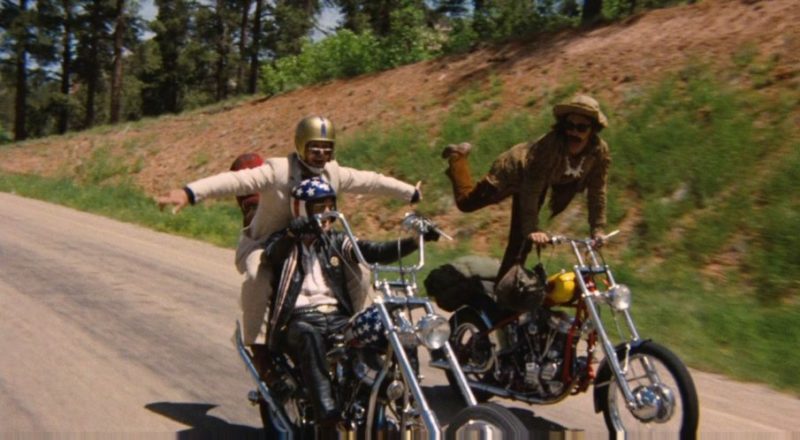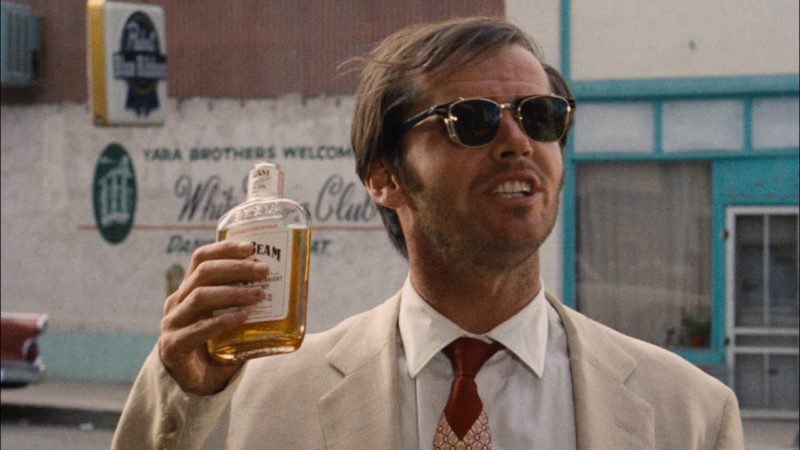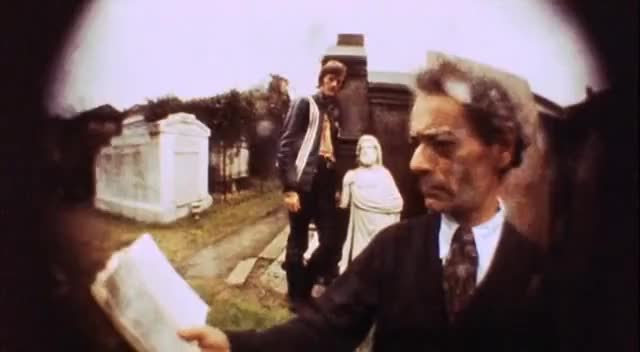50 YEARS AGO EASY RIDER DEFINITELY CHANGED AMERICAN CINEMA AND SOCIETY
Text by: Annarosa Laureti
The Golden Age of Hollywood was suffering since years. Its tales didn’t describe anymore the reality of society, a society that was dramatically changing with the outbreak of hippy culture, the escalation of the demonstrations against the Vietnam War and the increase of the fights for Afro-American people’s equal rights.
A young generation of filmmakers decided to become representative of such hot topics and to bring into the cinema everything that was severally forbidden until then. Destroying the “Hays Code” – a self-censorship code launched in 1933 by the Studios to avoid the federal one – sex, violence, drugs, vulgarity were displayed on the big screen for the very first time uncensored and in close-up.
New Hollywood was arising and its increasing members assumed, as their own holy trinity, three authors who directed those movies that todays are considered as the manifesto of the whole change: Arthur Penn (“Bonnie and Clyde”, 1967), Mike Nichols (“The Graduated”, 1967) and Dennis Hopper (“Easy Rider”, 1969).

Receiving the First Film Award at the 22nd edition of the Cannes Film Festival, screened again this year at the same Festival in a restored version, released in cinemas on July 14, 50 yeas ago – just 6 days before the first Moon landing of the Apollo 11 – “Easy Rider” was that film liable for officially kicking off the young counterculture. One month later, Jimmy Hendrix would literally fire up his guitar – and his public as well – at Woodstock event.
With a cost of only 360 thousand dollars, gaining more than 60 millions at the box office, the movie marked, by the way, the debut of Jack Nicholson, starring a young lawyer devoted to alcohol and looking for new adventures.

The director Dennis Hopper himself and the born to art Peter Fonda, indeed, play as the main characters Billy and Wyatt “Captain America”: freewheeling, long-haired, motorcyclists “born to be wild” – as the Steppenwolf sang during the opening titles – from L.A., on their way to New Orleans to join the famous Carnival parade.
Among pristine lands, valleys, and deserted endless streets, the two adventurous weirdos speeded on their flaming star-spangled choppers, coming across curios people, hippie colonies as well as facing off racist and reactionary Southern people.
Since the movie’s beginning the breakup message against Hollywood self-righteousness is loud and clear: only thanks to the buying and selling of a batch of cocaine, in fact – forthwith assigned – the two protagonists could take the long awaited route. Then, following a crescendo that little by little “legitimized” drug’ assumption, marijuana at first, the high point will be that of the LSD effects’ scene, unthinkable for those times not only because of what is shown but also, and above all, because of the editing that completely overthrew all current narration rights.

However, if we stop to what immoral was shoot we cannot well described the real inner force of the movie. Behind the trip, the transgression, the several trends spread out after the film’s release, there is much more. “Easy Rider” is a hymn to freedom and an encouragement to live it fully, at the cost of the life itself. The movie keys – and perhaps those of the whole life – are hold in the words more current than ever of a Jack Nicholson gripped by drugs.
“Freedom” is a word as easy to pronounce as hard to deeply understand – “talkin’ about it and bein’ it – that’s two different things”. And if someone can conquer it, or maybe if he only tries to catch a glimpse of it, that it will scare all those cowards who never attempt to defeat their own one: “they’re gonna talk to you, and talk to you, and talk to you about individual freedom, but they see a free individual, it’s gonna scare ’em”.
The sour ending predicted by a melancholic Captain America –“You know Billy, we blew it” – mustn’t be read as a defeat but as an invite to never stop fighting for our own being and diversity, also remembering all those who died for the so many achievements we can enjoy today.


